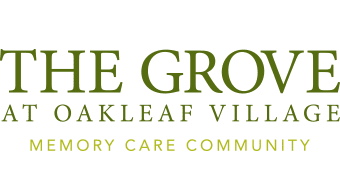Navigating the Later Stages of Early Onset Alzheimer’s for Your Loved One
When a loved one receives a diagnosis for early onset Alzheimer’s, the future may suddenly feel like a daunting and unknown territory.
However, with knowledge of what’s to come, your family can feel a greater sense of ease and confidence in moving forward.
Although your loved one’s healthcare providers may brief you on what you’ll experience during the initial stages of such a diagnosis, they may not cover the later stages of early onset Alzheimer’s.
Consider this post as a helpful overview for what you can expect and how to plan for the later stages of the disease.
Becoming aware of these stages will help you connect your loved one to quality care for his or her needs.
What Is Early Onset Alzheimer’s?
Before diving into details regarding the later stages of early onset Alzheimer’s, let’s get clear on what the disease is.
Early onset Alzheimer’s, also referred to as younger onset Alzheimer’s, affects individuals under age 65.
Typically, these individuals are in their 40s and 50s. They often have careers, they may have children, and they may potentially be caregivers themselves.
Less common than late onset Alzheimer’s, early onset Alzheimer’s, according to the Alzheimer’s Association, currently affects 200,000 people in the United States.
As the Alzheimer’s Society describes, the earliest symptoms of early onset Alzheimer’s are… [Link to:
- Problems with vision.
- Difficulties with speech.
- Challenges in planning and decision-making.
- Changes in behavior.
Although dementia is a progressive disease and worsens over time, the time it takes to progress varies depending on the individual.
For some people, Alzheimer’s progresses rapidly, while it takes years to reach an advanced stage for others.
When it comes to determining which stage your loved one is in, it’s important to know what indicators to watch for. Which brings us to our next point…
Signs Early Onset Alzheimer’s Has Progressed
While symptoms can vary from individual to individual, there is a common set of signs of moderate or severe dementia.
As the Alzheimer’s Association explains, moderate Alzheimer’s is typically characterized by…
- Increased assistance required with daily tasks, such as getting dressed and bathing.
- Increased confusion or poor judgment.
- Increased memory loss, such as loss of events that happened in the more distant past.
- Larger personality and behavioral changes, stemming from agitation and suspicion.
- Shifts in sleep patterns.
If your loved one is in the last/severe stages of early onset dementia, you may notice symptoms such as…
- The inability to complete daily tasks such as eating and grooming.
- The loss of communication abilities.
- An increased risk of infection, such as pneumonia.
- The complete loss of physical abilities such as walking and sitting.
- The inability to swallow and control bladder and bowel function.
Once you’ve identified that your loved one has reached these moderate or severe stages of early onset Alzheimer’s, it’s important to connect him or her with the necessary care.
When to Make the Move to a Memory Care Community
As your loved one’s dementia progresses, your priority is ensuring that he or she has the necessary care—as well as a safe setting that provides him or her with the resources to thrive.
These things can be provided by memory care communities.
From trained caregivers to healthy social interaction with other residents and nutritious, brain-healthy meals to professional medication management, these communities are often the best option for individuals with early onset Alzheimer’s.
Waiting too long to make the move raises your loved one’s risks for injury, depression, and an overall decrease in quality of life.
At The Grove at Oakleaf Village, we provide a vibrant, homelike environment for individuals with early onset and late onset Alzheimer’s.
We’re more than happy to answer any questions you have regarding quality care for your loved one.
Contact one of The Grove communities today to learn more about our memory care offerings.







